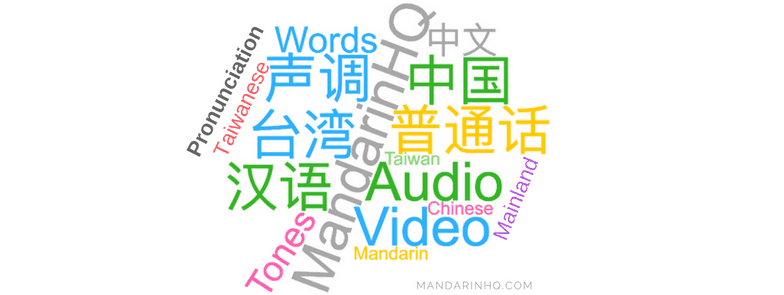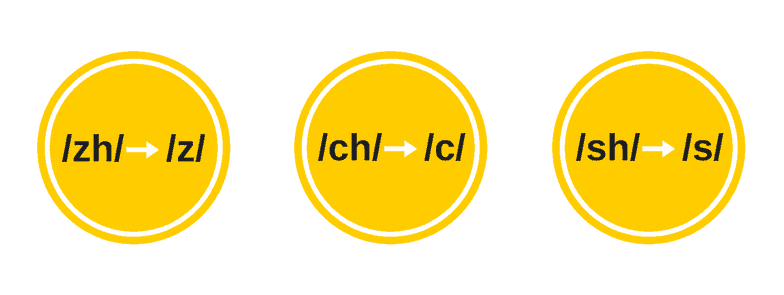The Mandarin of Mainland China and that of Taiwan are fundamentally very similar.
That said, there are several differences related to vocabulary, grammar and pronunciation.
For now, let’s focus on the third area.
1. Words with Tonal Differences
There’s a number of words that officially have different tones. Check out the video below to see what I mean!
BONUS: Download MP3 + PDF to Review This Lesson Anytime
The Words From the Video
Mainland Mandarin Chinese | Taiwanese Mandarin Chinese |
|---|---|
|
|
|
|
|
|
|
|
|
|
|
|
|
|
|
|
|
|
|
|
|
|
|
|
|
|
|
|
2. The Neutral Tone
The neutral tone, which is common in Mainland Mandarin, rarely appears in Taiwanese Mandarin.
The words in the table below show how the tone on the second syllable becomes neutral in Mainland Mandarin, but not in Taiwanese Mandarin.
Mainland Mandarin Chinese Neutral tone on final syllables | Taiwanese Mandarin Chinese No neutral tone (syllables retain original tone) |
|---|---|
|
|
|
|
|
|
|
|
|
|
|
|
3. Sound Changes
In an earlier video we saw that some sounds in standard Mainland Mandarin are pronounced differently by many Taiwanese Mandarin speakers. For example, zh/ch/sh sound like z/c/s.
Challenge: Listen to the two audio clips below. In which clip do you hear the sounds zh, ch, sh change to z, c, s?
(Correct answer: The sound changes appear in clip #2)
4. “Erhua” (儿化)
Another key difference is the use of "Erhua".
This is a feature of Mainland Mandarin that’s largely absent from Taiwanese Mandarin.
To illustrate the “erhua difference”, let’s use the word 好玩 (fun).
Pronunciation of the word 好玩 (fun) With Erhua: Without Erhua : |
|---|
There’s a general perception that the Mandarin you hear in Taiwan (and southern mainland China) sounds softer than that spoken in northern China. The fact that northerners use a lot more “Erhua” is a big part of the explanation for that perception.
On a computer: Right click on the button and select "Save as" or "Download"
On a phone: Tap and hold your finger on the button for a second (and you'll see the download option in the menu that pops up)
Related Posts:


